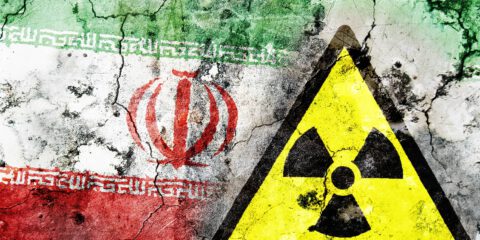Many have raised understandable moral qualms (and practical questions) about conduct of war in Yemen. Indeed, the coalition fighting the Houthi uprising should be more attentive to the loss of innocent lives. But allowing Iran’s proxies to win the war in Yemen would have dangerous political and far-reaching strategic consequences for Israel, the region, and US interests.
An Inconclusive Struggle
Since September 2014, Yemen has been in the throes of a brutal civil war. The Iranian- backed Houthi uprising seeks to take over the country (and indeed it controls the capital, Sana’a, and almost all northern Yemen). The legitimate government of ‘Abd Rabbu Mansur Hadi holds onto much of the south but now faces also a southern separatist rebellion in Aden and challenges from ISIL and al-Qaeda affiliated forces. A coalition led by Saudi Arabia and the UAE – which at various points also included Egypt, Jordan, Morocco, Sudan, Bahrain, and others – responded to the Houthi threat by an extensive campaign of air strikes and some “boots on the ground.” More recently, the UAE broke with Saudi Arabia and with Hadi and shifted its support to the southern rebels (the Southern Transition Council).
In practical terms, the way the war has been fought has proven singularly ineffectual. This raises tough questions regarding the ability of the Saudi and Emirati air forces to translate their superior arms and greater fire power into operational gains on the ground based on real-time actionable intelligence. A war that the Saudis over-confidently claimed could be decided within weeks has now been fought inconclusively for more than five years.
It may perhaps be possible for Israel, directly or through the agency of its new place as part of the CENTCOM Area of Responsibility, to offer some advice. It is commonly assumed that in some respects, as regards defense against Houthi missile attacks, the Gulf countries have already been relying on some degree of Israeli support.
Human Suffering
More significantly, the cost of the fighting, in terms of the immense suffering of non-combatants, has been rising steadily.
According to the UN office of Coordination of Humanitarian Affairs (OCHA), “tens of thousands” of civilians are among the 130,000 or more who died in the actual fighting, many of them killed in coalition air raids and in the shelling of densely populated areas.
Even worse has been the effect of hunger and disease, which took the lives of some 100,000 peeple, bringing the overall toll of the war so far to nearly a quarter of a million dead. Other contributing factors (floods, locusts, Covid-19) may lead, as UN secretary general Antonio Guterres warned in November 2020, to “imminent danger of the worst famine the world has seen in for decades.” The lives of perhaps more than 20 million Yemenites are now at risk.
Such levels of destruction and starvation have led to fierce criticism of the coalition’s conduct, both in Europe and in the US, and to some measures taken to dissociate from the UAE and Saudi Arabia. The left-leaning government of Italy has recently cited the war in Yemen as the reason for terminating arms supplies to Saudi Arabia and the UAE. Elsewhere in Europe, various NGOs have been urging governments to take similar boycott steps.
The US Position
“Progressive” American NGOs, as well as several members of Congress, have raised their voices against the war and its immense human toll. The gruesome killing of the journalist Adnan Khashoggi added fuel to the anti-Saudi animus. Back in 2018, former UN Under-Secretary General Jeffrey Feltman – who had served as an Assistant Secretary of State under Obama – called on Saudi Arabia to take the first steps towards de-escalating the war.[1] The Trump Administration was not easily swayed by such moralistic appeals. But with Biden at the White House, the Congressional pressure to curtail support for the Saudi war effort is bound to have greater weight.
The new administration’s announcement that it will suspend and re-assess major arms sales, concluded in the very last days of the Trump administration, has been officially explained as a normal review procedure. This includes the massive F-35 deal with the UAE (seen as part of the incentives for the “Abraham Accords”) and the sale of munitions to the Saudi Air Force.
Objections to the war in Yemen did not necessarily play a role in Biden’s decision to review these arms deals. But the war in Yemen indeed may have an impact on results of the review process. The consequences of cancellation of these arms deals would be severe and far-reaching.
It is in Israel’s interest (and that of the region as a whole) and the interest of the US to ensure that whatever legitimate moral concerns pertain to the war in Yemen do not result in a victory for Iran and its proxies leading to consolidation of their control over all or most of Yemen. An Iranian victory would have dangerous strategic implications.
- Yemen’s position on the vital waterway of Bab al-Mandab would give Iran an additional choke point (alongside Iran’s own position on the Straits of Hormuz) on international shipping routes. The Red Sea is a vital SLOC between the Indo-Pacific world and Europe. China, for whom this waterway is a key part of its “Maritime Silk Road” (one of the two arms of its “Belt and Road Initiative”), would be increasingly beholden to Tehran on a matter of supreme national priority.
- Implications for the already fragile situation in Somalia, Eritrea and Djibouti also could be severe.
- There also will be symbolic political reverberations throughout the region. If the Houthi rebels win, having launched repeated missile attacks on civilian targets in Saudi Arabia, the lessons would be learned by foe and friend alike (in terms of tactics, norms, grand strategy, and ideology).
The Biden Administration reasonably may expect the Saudis and the UAE to engage in a discussion on the way the war is conducted. (In such a discussion, Israel could bring to bear some of its own experience in navigating the conjunction of real-time intelligence, precision-guided munitions, and international humanitarian law.) Such a discussion, however, needs to be framed in the context of a common determination to win the war; or at least, if it is ever brought to a diplomatic conclusion, to assure that the outcome cannot be interpreted as an Iranian triumph.
Given the salience of Iran’s nuclear challenge, it is important to signal at an early stage (as France apparently already has realized) that US support for traditional allies, and a determination to contain Iranian aggression, will be part of the regional equation. The Biden administration needs to avoid (or at least, mitigate and compensate for) decisions that undermine the efforts of its regional allies to contain Iranian hegemonial aspirations; that pose a risk to the entire Red Sea basin; and that play into the hands of a movement (the Houthis) which does not even bother to hide its crude anti-Semitism. (Banners proclaiming, “A curse upon the Jews,” “Death to America” and “Death to Israel” hang prominently at the gates of Houthi-occupied Sana’a).
[1] Jeffrey Feltman, “The Only Way to End the War in Yemen: Saudi Arabia Must Move First,” Foreign Affairs, November 26, 2018.
JISS Policy Papers are published through the generosity of the Greg Rosshandler Family.
Photo: Bigstock









 - בניית אתרים
- בניית אתרים